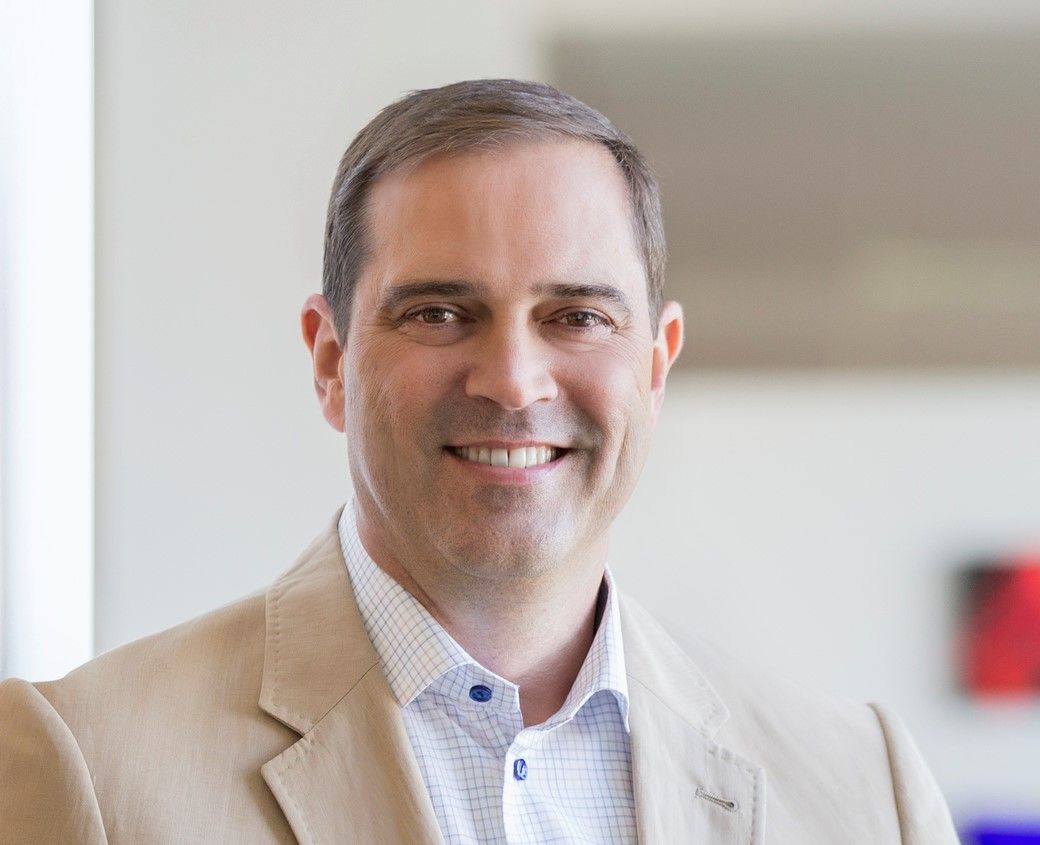As the 26th UN Climate Change Conference will take place in November 2021, at the Scottish Event Campus (SEC) in Glasgow.
Q&A - Amanda Brock, CEO, OpenUK / Ali Fenn, President, ITRenew / Lucy Yu, CEO at Octopus Centre for Net Zero
1.) In the run up to COP26, what do you think the biggest issues will be at the event?
ALI: The biggest issues are decarbonization, dematerialization and circularity - in response to dynamics that have traditionally encumbered the planet with a massive tax. To solve for them, we also have to navigate the inherent tension between these imperatives and the relentless demand for continued growth and infrastructure deployment - especially needed in the developing world to enable health, welfare, and opportunity.
LUCY: We know that how we can unlock private investment to support decarbonisation and greener pathways and behaviours in industry will be a key topic of discussions. Government can play a role here by setting direction of travel for future policy and regulation in order to provide investors with confidence and to de-risk their investment strategies. Our modelling and simulation work at the Octopus Centre for Net Zero will be a key input, helping governments to understand how different scenarios are expected to unfold.
AMANDA: There is also going to be a whole different slant on this event, if it is a physical event, as opposed to a digital one, as we hear it might be. I understand that the UK Government are to make a decision on it in March. If it were to be face to face, then it will be the first big UK event since the pandemic started and that will create a further level of excitement and drive around it.
2.) How much does the IT sector contribute, both positively and negatively? What approaches should we all take in future?
AMANDA: “I believe that there is a role for organisations like OpenUK, in seeing the connections between existing projects and people, the potential in the big picture and having the relationships to bring those people together into a collaboration where we can make things happen. Open technology is a key ingredient in almost all the big applications and services we have created so far, and it will continue to be critical in any projects that get put together around climate change.
Personally, my taking on a role on the Sustainable Digital Infrastructure Alliance, has been part of the exercise of embedding open more deeply into sustainability. At the same time we have been lucky enough to bring Cristian Parrino on board to lead on Sustainability at OpenUK. He has a unique skill set with deep understanding of open technology from 5 years in Canonical and a track record as a strong sustainability innovator and entrepreneur.
OpenUK has been working closely with the Open Compute Project for some time and we joined Gaia- X as a first day member sponsored by them. We understand the role of infrastructure and how important an open approach is around hardware, software and data.
Getting this right supports more interoperability and avoids lock-in or lock-out, which are issues that technologists and business care about. However, it also makes it easier to plan ahead - rather than three year refresh cycles, we have to be looking out ten, twenty, thirty years and what we imagine will happen over time. Open technology will be essential for companies to feel like they will not be beholden to vendors in their supply chains and help them feel confident investing around energy efficiency. ”
ALI: There is no question that the IT sector is the largest industry in the world, powering every aspect of our lives and positioned as the best hope in solving our greatest social challenges, including climate change. But unfortunately, the massive scale infrastructure that underpins all the powerful positive potential has a dirty underbelly in the form of carbon and materials. The Shift Project estimates (/content/files/wp-content/uploads/2019/03/lean-ict-report_the-shift-project_2019.pdf) that on its current path, the global ICT industry could be on track to grow from ~4% of global GHG today to nearly 8% by 2025. This growth has to be handled boldly and responsibly because the gradual shift to renewable energy can’t begin to curb it. At the same time: there are greater than 50m tonnes of e-waste produced annually. This number is incresing, and we are running out of the Earth’s minerals required for electronic components.
Some facts help highlight the current trajectory and the very rational fear:
- Demand for data and digital services is expected to continue its exponential growth over the coming years, with global internet traffic expected to double by 2022 to 4.2 zettabytes per year (4.2 trillion gigabytes).
- The number of mobile internet users is projected to increase from 3.8 billion in 2019 to 5 billion by 2025, while the number of Internet of Things (IoT) connections is expected to double from 12 billion to 25 billion.
- (citation: https://www.iea.org/reports/data-centres-and-data-transmission-networks
These trends are driving exponential growth in demand for data centre and network services. Yet, global data center electricity usage has remained flat from 2010 to 2020 at ~1% of total electricity. (citation: https://www.iea.org/reports/data-centres-and-data-transmission-networks
Taken all together, the implication and opportunity clearly emerges: Operational phase energy (Scope 1 and 2) efficiency is essential, but only a minority piece of the equation. Scope 3 emissions in the supply chain require intense focus and mitigation in this era of sustainable development via circular data center infrastructure and corresponding solutions.
Fake header to split
We’re taking this approach at ITRenew, applying circular economics and sustainable tech to change how the data center industry sources, designs, uses and reuses IT hardware. With our Sesame Systems, we’re able to design eWaste and CO2 out of new infrastructure by decommissioning technology from the world’s leading global cloud companies, and transforming it into compute and storage solutions any data center operator can use. Done right, this brings previously out-of-reach hyperscale tech to the broader market and delivers significant economic and sustainability advantages, all without creating any new carbon, pulling scarce resources from the ground, or firing up factories. By our estimates, for every 5M servers decommissioned this circularity model avoids 3M tons of CO2e production, which is equivalent to cutting emissions from 670K cars on the road.
For ICT, the answer is in wholly circular, carbon negative data centers based on open technology, that also mitigate supply chain scope 3 emissions.
3.) All of you believe in causes - how much is that sense of belief necessary to making changes?
ALI: It is imperative. : It is imperative. We have the tools, the technology, the systems and the solutions to transform the way we build, deploy, and manage the massive and booming scale IT and data center infrastructure. So there is no reason we can’t move faster, bringing rapid adoption to sectors, industries and companies that are already well-established, as well as creating new models where they didn't exist before. What we need to make it happen is conviction, commitment, and a mindset shift - every global citizen needs to demand that their service providers think and act differently. Each of us needs to understand the challenge, advocate for solutions implementation, and work together to catalyze the global technology industry toward a model where all stakeholder value is the objective.
LUCY: In my view driving real change hinges on great leadership; it’s not a management problem. Having a real cause to believe in and get behind and to ignite peoples’ intrinsic motivation is one of the things that helps leaders build brilliant teams and movements for change.
AMANDA: The passion and determination we each need to stand up for the changes we know are right and necessary are absolutely based on belief. We simply wouldn’t be able to keep going without it.
4.) Are you optimistic about what the future holds ahead of COP26?
ALI: Yes! As noted above,we have innovations today - like open source software and hardware, data, and frameworks - that are proven to democratize access and opportunity, lower the costs of scaling, increase transparency and accountability. We have solutions, like ITRenew’s Sesame systems (described in response 2) that prove circular IT hardware is zero compromise relative to legacy “new” hardware, and in fact can reduce complexity, improve efficiency, and lower TCO, while offering significant carbon and materials advantages. We know how to deploy green energy, to build low impact physical infrastructure, and to recapture and redeploy materials and heat. And we know that across the globe, post pandemic recovery plans include heightened focus on sustainability and re-building with climate at the forefront. I choose to believe mass social challenges like the Covid 19 pandemic can be either portals or holes, and in this case, the potential exists for us to come together, walk through the portal, into a more resilient and sustainable global collaboration.
LUCY: Yes! I’ve spent twenty years growing teams of people with innovation at the heart of their cultures - not just in terms of new technologies, but in terms of policy, regulation and business models. I believe that the world already has the creativity and invention needed to address the challenges of the future so the next step is to convene and mobilise all of our efforts in a single direction.
5.) What can the UK do alongside hosting the event? What would you like to see before the event takes place?
Amanda: There are initiatives that the UK can take in order to support more opportunities in this space. The UK will undoubtedly look at applying the lessons of open banking and access to data to the realm of utilities, for example. The UK is already a leader in the worlds of fintech and open technology, so we could carry the same leadership role to energy efficiency.
The UK will be a leader in this sector - it is vital that the UK adapts and supports the market that is developing around solutions for more energy efficiency, allowing businesses to export their expertise and collaborate with others across the globe.
The UK’s technology sector plays a big role in global movements like open source software that lend themselves to supporting the circular economy, decarbonisation and building up economies of scale. This can support some of the bigger, more strategic moves that will be required to meet the goals for the economy over time.
6.) What is the risk if we don’t get this event right?
ALI: Time. COP26 is a convening body that has the power to advance ideas, to drive action, to spare wasteful cycles, to compel collaboration and systems level change that spans audiences of diverse stakeholders and participants. We will continue the march regardless, but it is imperative that we seize every opportunity to come together and collaborate and act, as time is of the essence.
LUCY: Time, cost and equity. Decarbonising the planet is a non trivial challenge and there are all sorts of approaches we could take but they are not equal in terms of the time they will take, the costs to government, industry and society, or how those costs will be distributed. Getting this event right means we collectively find and agree the best pathways and focus our attention and efforts on those.
AMANDA: We have an opportunity with COP26, to focus on making the UK exemplary in wrapping the right approach around this event. The opportunity to build for the future in our post Brexit economy is right here, in front of us. The UK must take its leadership position and encourage more companies to take on the problems that exist, and to collaborate and be open in the approach to their resolution. The wonderful thing about open is that it supports more collaboration and more experimentation than anything and this inevitably drives greater adoption faster. We can’t rely on proprietary companies to save the world. The way to do this is together.
7.) What else should organisations be thinking about here?
ALI: I think the imperative is for organisations to think bigger. Gone are the days of thinking only about one’s own core operations; rather each entity and team must think about their role in the broader ecosystem, who they work with up and downstream across the supply chain and how. We are at a point of convergence where people and companies are motivated to seek out alternative models. We each have a responsibility to demand more from our service providers, management, suppliers, public sector partners, clients, and teams. As we do this, we also must seek to deploy open and transparent, globally accessible solutions that enable broader systems level change rather than siloed, individual and proprietary gain.








